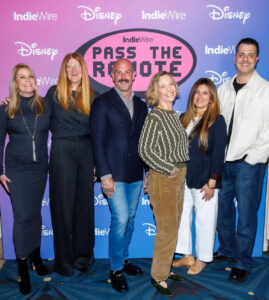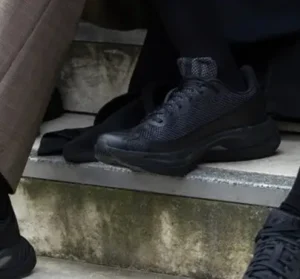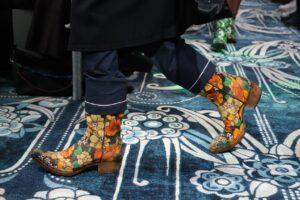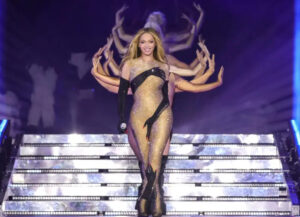In an era where character-driven television has redefined cultural engagement, the role of casting directors has become not just integral, but foundational. Nowhere is this more evident than within the walls of Disney Television Studios—home to genre-bending comedies, heartfelt dramas, and unapologetically original characters. At IndieWire’s “Pass the Remote” FYC event hosted at Vidiots in Los Angeles, the creative wizards behind the scenes stepped into the spotlight to articulate their nuanced, often underappreciated work.
The featured lineup—Only Murders in the Building, Deli Boys, Paradise, Abbott Elementary, The Act, and Not Dead Yet—spans tonal registers and storytelling modes, yet all share a common denominator: impeccable casting. Either it’s the deadpan wit of Steve Martin and Selena Gomez in a meta-mystery or the kinetic classroom cadence of Quinta Brunson’s breakout hit, the chemistry was never incidental. It was chosen.
The Invisible Architects
Casting is often the first interpretation of a script outside the writer’s room. It’s where archetypes become individuals, where a director’s instinct meets a producer’s pragmatism. IndieWire’s event welcomed veteran casting directors such as Tiffany Little Canfield (Only Murders), Wendy O’Brien (Deli Boys), Sharon Lieblein (Paradise), and Kim Coleman (Abbott Elementary)—each bringing a war chest of behind-the-scenes anecdotes and a shared reverence for the intimacy of discovery.
Tiffany Little Canfield emphasized the balancing act of casting “names” while preserving narrative cohesion. “Steve and Marty were already attached to Only Murders, which gives you this incredible head start,” she explained. “But adding Selena Gomez brought a different gravitational pull—youthful yet weary, precise but effortlessly modern.”
Her casting wasn’t just counterbalance; it was contrast-as-chemistry. “She made Steve and Marty feel even more seasoned, and they gave her gravity she could work against. That’s the alchemy.”
Culture, Code-Switching, and the Ethics of Representation
Wendy O’Brien’s work on Deli Boys—a comedic drama that orbits two Pakistani-American brothers navigating criminal underworlds—required a different skillset: cultural immersion. “It wasn’t about checking boxes,” O’Brien noted. “It was about authenticating an experience that hadn’t yet found a mainstream voice on TV.”
She worked closely with showrunner Abdullah Saeed to ensure authenticity didn’t become didacticism. “We didn’t want to ‘teach’ the audience Pakistani culture; we wanted to reflect it. The goal was actors who could breathe in bilingual dialogue like oxygen—who knew the rhythm of cultural code-switching without theatricalizing it.”
O’Brien underscored the importance of inclusive pipelines. “The industry doesn’t have enough South Asian leads in its Rolodex, so you build new Rolodexes. Open calls, comedy showcases, and community theater—we turned every rock.”
Her eye yielded a cast that feels lived-in, not lab-engineered—a victory of depth over decoration.
World-Building Through Faces
For Sharon Lieblein, casting Paradise—a stylized neo-noir crime series with surrealist undertones—meant understanding tone at an atomic level. “The show is offbeat, slightly heightened, but grounded in trauma,” she explained. “You’re casting for contradiction.”
Lieblein spoke about selecting actors not just for their resume, but for their ability to “subvert expectations without losing believability.” Her priority was casting actors who could oscillate between pathos and absurdity in a single beat. “We needed faces that could carry history, that you believe had a life before the pilot.”
Casting becomes, in her framework, a kind of architectural drafting. “You’re not just populating a frame; you’re constructing a psychology of place. Every role, from lead to walk-on, is a tile in the mosaic.”
She also noted how the streaming age has blurred the lines between film and television casting. “TV used to feel smaller, tighter. Now, it’s where actors want to be ambitious.”
The Democratic Power of Ensemble
Nowhere is casting more influential than in a show like Abbott Elementary, where the rhythm of ensemble comedy depends on microscopic timing and lived-in authenticity. Kim Coleman described the process as “chemistry-first, resume-second.”
“Quinta Brunson already had the nucleus of the show inside her,” Coleman said. “She was Janine. But for the rest, we needed natural foils—teachers who feel like colleagues you’ve known forever.”
Casting Tyler James Williams as the skeptical, guarded Gregory Eddie brought a stoic frequency that played perfectly against Brunson’s optimism. Sheryl Lee Ralph as Barbara Howard? “A legacy presence,” Coleman called her. “She’s not just playing a character; she’s playing lineage.”
Coleman emphasized the need to respect the audience’s intelligence. “People don’t want caricatures of teachers. They want to recognize their teachers.”
The casting’s success lies in its lack of flash. Every character arrives fully formed, like they’ve been in the teacher’s lounge for decades.
Casting as Storytelling in Its Own Right
Rounding out the panel was a joint conversation around Not Dead Yet and The Act, where casting intersects directly with concept. Not Dead Yet, which stars Gina Rodriguez as a journalist who communicates with the dead, relies on episodic guest appearances that must feel instantly dimensional. The Act, dramatizing the real-life Gypsy Rose Blanchard case, demanded exacting performances that could shoulder psychological weight.
“When you’re casting from real life, like in The Act, accuracy matters. But more than that, interiority matters,” one director noted. “Joey King had to show us someone trying to believe her own performance. That’s layers on layers.”
These projects, more than others, highlighted the vulnerability of actors who are tasked with embodying trauma, absurdity, or both. “Our job isn’t just to cast; it’s to protect. We don’t throw actors into emotional fire without support.”
The shift from one-off casting calls to longer, supportive partnerships reflects a larger industry pivot: a move toward sustainability in creative labor.
The Ecosystem Behind the Curtain
What became clear across all the discussions is that casting isn’t an isolated act—it’s a connective role that integrates writing, directing, producing, and marketing. It is an ecosystem of conversations, instinct, and deep interpersonal understanding.
Panelists lamented the historical invisibility of casting direction in major awards. “There’s no Oscar for casting,” one noted. “But the wrong cast can sink a perfect script. And the right cast can make something mediocre sing.”
They also nodded to the increasing use of technology in auditions—especially since the pandemic. “Zoom auditions are tricky,” said Coleman. “You can’t read the room, can’t feel that visceral charge. But it’s made us more democratic. We’re seeing actors from towns that never had a shot before.”
Technology, they agreed, was a double-edged sword—useful for access, but limited in intimacy.
Casting for the Future
In closing, the conversation turned toward emerging trends. Casting directors now serve as cultural stewards, not just talent matchmakers. They’re tasked with imagining who gets seen—and how. From neurodiverse roles to trans visibility to disabled talent, casting has evolved into a frontline of cultural reformation.
“We’re not just reflecting the world anymore,” said Canfield. “We’re forecasting it.”
As streaming platforms fragment audiences and redefine what success looks like, the traditional marquee name matters less than the alchemy of fit. The future of casting lies not in spotlighting stars, but in constructing ensembles where every role—no matter how small—feels irreplaceable.
Flow
In an industry obsessed with above-the-line talent, IndieWire’s “Pass the Remote” event was a rare moment of collective gratitude. It was an acknowledgment that while writers draft the blueprint and directors build the structure, casting directors choose the soul.
From Only Murders’ dry-as-bone charm to the pedagogical playground of Abbott Elementary, from the South Asian grit of Deli Boys to the conceptual strangeness of Paradise, Disney’s casting teams have demonstrated that to cast wisely is to cast a spell.
The event also served as an invitation—to audiences, critics, and future creators alike—to see casting not as behind-the-scenes labor but as co-authorship. Without them, there would be no glances that linger, no chemistry that clicks, no world we believe in.
And in television’s new golden age, that belief is everything.
No comments yet.









